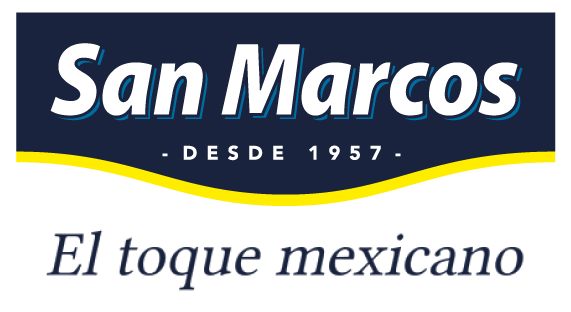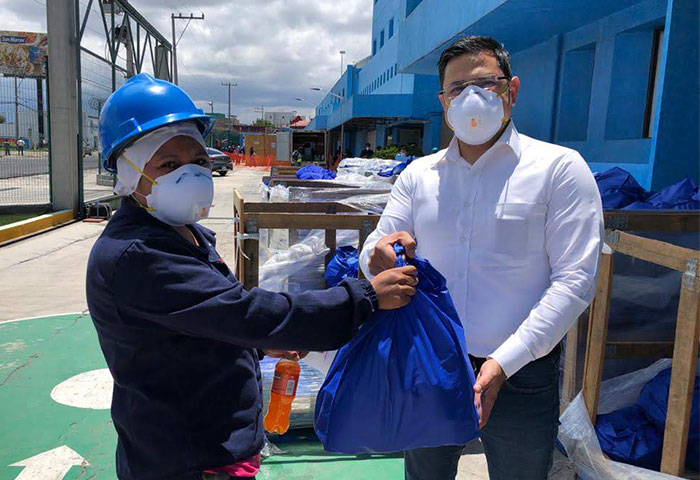Ethics code
Ethics code
Archives for Marcelo Sanchez » Page 7

Reach
The Ethics Code of bia is of general scope and includes the members of the Board of Directors, President, Vice-Presidents, Directors, Managers and each and every one of the collaborators of the group, which is formed by all business units: apex, cbc, bia and beliv, including its subsidiaries and related companies.
All of us who are part of bia accept the personal responsibility of complying with the Ethics Code with the following:
Perform our work with honesty, care, diligence, professionalism, impartiality and integrity.
Implement the strictest ethical standards to maintain certainty and trust in our management. To read and understand the Ethics Code and the consequences that result from its breach.

Corporate Values
All bia collaborators share and live the following values:
- I am owner
- I dream big
- I am passionate about what I do
- I live with integrity
- I am excellent
- I am disciplined
All our business and professional activities are based on integrity. We act with honesty and transparency.
Likewise, we maintain respectful and harmonious relationships with open and honest communication. We work as a team. We are always in search of excellence. All this translates in the development of the company and in opportunities of personal and professional growth for each one of the members of bia.

LOYALTY TO OUR PRODUCTS
Loyalty to our company is a very important value at bia. All bia collaborators must reflect loyalty at all times, both inside and outside the company. We are all ambassadors and representatives of all the brands in the portfolios of all our companies. This is why we prefer our products over others.
Our collaborators understand the quality of the products that we offer and that this is why we freely chose to consume our own brands and we avoid purchasing products of other companies that compete with our products and we definitely do not consume similar products from our competitors.
In case of social events outside the company to which we are invited, we will offer prudently our brands when possible. Of course, we will not behave improperly for any reason.

RESPONSABILITIES
The Code specifies how each one of us who are part of bia must conduct our performances and our relations with our colleagues, suppliers, clients and the communities in which we operate. No collaborator of the company has the authority to request or perform any action that violates this Code. The Code is not subject to any type of waiver or exceptions by any collaborator. The Compliance Department, together with the People and Management Department, are responsible of promoting the knowledge and broadcasting of this Code. The Compliance Department is responsible of answering questions related to its interpretation. Any collaborator that deliberately breaks this Code or who allows or authorizes a subordinate to break it will be subject to disciplinary sanctions, up to and including dismissal.
1.- ETHICAL RULER
1.1 – Integrity and rules of conduct
All our business and professional activities are based on integrity. We act with honesty and transparency.
1.2 – Inclusion and no discrimination
We develop, without exceptions, business practices that are inclusive and free of all discrimination. We recognize in diversity a wealth that promotes innovation and allows better understanding of the cultures in which we work. We encourage the free exchange of ideas because we recognize the force of dialogue to build a culture of excellence and to achieve a shared vision and mission.
1.3 – Equal employment opportunities
Our personnel selection practices are based on equal opportunities. Our collaborators develop their career plans based on meritocracy and objective evaluations. We implement training programs to transmit new knowledge that allows the collaborators to improve their opportunities of professional growth.
We compensate our collaborators according to their development and through compliance with objective policies.
1.4 – We report harassment
We repudiate and denounce any practice of harassment or abuse, particularly sexual and labor harassment.
1.4.1 – Labor harassment
Labor harassment is the repeated occurrence of hostile behavior or attitudes that threaten the dignity of a collaborator. This behavior may come from a person that has supervision responsibilities or from a colleague.
1.4.2 – Sexual harassment
Sexual harassment refers to sexual advances not welcome or accepted by the recipient, with the threat to harm his or her employment status or modify its employment opportunities, regardless of whether it is a relationship of supervisor and supervised, or among collaborators.
2.- COMPLIANCE WITH LAWS AND REGULATIONS
2.1 – Respect for the Law
Our business and professional activities will be developed with strict adherence to laws and regulations in force in each of the countries in which we operate.
2.2 – Anti-Corruption Policy
We ban and denounce bribes and any other form of corruption to the authorities and public workers. It is forbidden for our collaborators to offer or grant intentionally, directly or indirectly, to a public official or employee, a promise or advantage for themselves or other people in exchange that the public official or employee perform or omit any act in the exercise of his public functions. It is prohibited to receive from third parties undue payments of any type, gifts or favors that, because of their value, characteristics or circumstances pretend to alter the development of commercial, administrative or professional relations.
We all must read and accept the Anti-Corruption Policy, with is an essential part of the Anti-Bribery Management System – ABMS. The main objective of ABSM is to identify, control, monitor, detect and investigate corruption situations that may happen in the company. ABMS is mandatory for all the collaborators and we are all responsible for its effectiveness and operation, mainly denouncing any corruption act.
2.3 – Respect for human and labor rights
All our actions are carried out with the strictest respect to the Human Rights of the Universal Declaration of Human Rights.
We believe that liberty, justice and world peace are based in recognizing the dignity of people and the equal and inalienable rights of all members of the human family. We respect the current labor legislation in each country in which we operate and we work within the framework of what the different agreements established by the International Labor Organization.
2.4 – Prohibition of child labor
Child labor is work done by a child who has not reached the minimum age established by the local laws. Child labor prevents the fullest education and development of children. We prohibit the hiring of people under the age of 18 (or the local minimum age) and we demand from our collaborators and suppliers the strictest adherence to this principle.

2.5 – Prohibition of forced and obligatory labor
Forced labor refers to work that is done involuntarily and under threat of penalties. It refers to bonded labor, modern slavery or any form of human trafficking. We repudiate forced labor. We demand from our collaborators and suppliers the strictest observance of this principle. The use of physical punishment, threats of violence, intimidation and other forms of physical, sexual, psychological abuse will not be tolerated as a method of discipline or control in the workplace.
2.6 – Health and safety at the workplaceo
Proveemos de ambientes laborales seguros y de acuerdo a lo que establecen las leyes y normas aplicables. Los colaboradores tienen la obligación de respetar las normas de seguridad e higiene y de utilizar los equipos de seguridad que correspondan.
All of us at bia consider safety a priority. In each of the functions that we perform, safety and accident prevention always prevails.
3.- RELATION WITH THE PUBLIC
3.1 – External communications
All media contact is done through properly authorized personnel. It is fundamental to maintain a transparent and respectful relationship with the media to guarantee the projection of a company image in accordance with our values. Collaborators contacted by any media should transfer the contact data to the Corporate Affairs Department.
3.2 – Social media and instant messaging communication
We encourage and value diversity and exchange of ideas in a respectful and appropriate way. The publication of confidential or inappropriate information through social media or instant messaging can harm our company, the corporation, our brands and our colleagues.
Remember that anything that you publish in social media can affect your image and the image of the company. Use your good judgement before issuing any opinion, comment or judgement to be consistent and aligned with the values and professional standards of our company. To guarantee the adequate use of social media and instant messaging, you must comply with the following:
Do not disclose or share without authorization any image, video or internal information of the company or corporation that have not been disclosed in our own official channels, including pictures, videos, internal documents, trainings, internal meetings, financial information, processes information, strategic planning, projects, goals, commercial projections, client information, etc.
All your opinions must be strictly personal. Do not express opinions implying that it is the official position of the company.
Do not make judgments or opinions that are discriminatory or may result in insults, defamation and slander against any person, product, client, supplier, employee, former employee, competitor or any other part related to the company.
Do not share with people outside the corporate group any mail that you receive in your company e-mail and that contains information for internal use.
Your communication must always reflect respect to people, family, community, the environment and must be based on human values and corporate values.
3.3 – Fair competition
We do not practice unfair competition nor de we encourage any action that involves unfair competition practices. We are committed to observe the compliance of laws and rules of free competition. If by any reason it is necessary to comment on the product and services of our competition, our comments will always be based on objective information and will be communicated by the persons authorized to do so.
3.4 – Relations with our clients and consumers
The relations with our clients are based on equality, trust and mutual knowledge. We are committed with the quality of our products and services. We develop relations that generate shared value, especially with micro, small and medium entrepreneurs. We maintain responsible communication with our consumers so that they may exercise their right to make informed elections.
3.5 – Relations with our suppliers
The company must insure and demand from all its suppliers, including potential ones, to maintain the confidentiality of sensitive and confidential information of the company. When selecting suppliers, the company must guarantee a transparent process, giving the same information to all suppliers and to maintain uniform and clear rules for everyone.
We seek to foster lasting relationships with our suppliers. Our relationships are based on fair and honest treatment. The suppliers must know and adhere to the principles of this Code and to apply them in the context of their own business culture.
4.- CORPORATE SOCIAL RESPONSABILITY
4.1 – Relations with the community
We are committed to act in a socially responsible manner, in all that we do. We respect cultural diversity, and the customs and principles of the communities in which we operate. Likewise, we seek to develop activities that favor economic and social development of our communities.
4.2 – Environment
We are committed to sustainable development. For this reason, the protection of the environment constitutes a comprehensive part of each and all of our processes. We promote the quality of environ- mental management by promoting economic growth and competitiveness in a regional and national scale, incorporating best international practices to prevent and minimize environmental impact in our operations.
We stay focused on the efficient use, reuse and recycling of all of our resources.
We believe in an economic and social development that satisfies the actual needs of people without compromising the capacity of future generations to satisfy their own needs. We establish alliances with the communities and local governments to promote an adequate environmen- tal management.


5. INFORMATION CONFIDENTIALITY AND ASSENTS PROTECTION
5.1 – Confidentiality of personal information
We are committed to request and use exclusively the data of our collaborators that are strictly necessary for the effective management of business activities, and always according to what it is established by law. The collaborators who, because of their activities have access to the information of other collaborators, must respect and promote confidentiality of this information and will use it responsibly and professionally.
5.2 – Asset protection
We always aim to protect bia assets. This includes its tangible and intangible assets such as rights, brands and information. We maintain the confiden- tiality of the information to which we have access, even if we are not part of a particular company. We are responsible of protecting the assets entrusted to us, preserving them from any loss, damage, theft or illegal use. We use these assets exclusively for appropriate, professional functions and not for personal or third-party use.
The bad use or non-authorized disposition of the assets of the company which results in a loss or contingency for the company, represents a viola- tion to our Code and will be subject to disciplinary measures according to the laws and regulations as well as the labor regulations of each country. The following are considered assets of the compa- ny, but are not limited to these examples: tangibles: inventory, fixed assets, buildings; intangibles: patents, brands, registers, formulas, systems, permits, data bases, commercial plans, corporate information and others.
5.3 – Use and management of financial and non-financial information
The financial information and the results of its oper- ation have to be registered according to the legal requirements and generally accepted accounting principles. Any person with the responsibility to elaborate, process and register this information is responsible of its veracity, integrity, accuracy and precision.
All the reports of all areas of the company have to perform with this same veracity, accuracy and precision. This includes, among other things, the following: quality, commercial, expenses, opera- tions results, development evaluations and excel- lence programs.
The manipulation and alteration of accounting reports and financial statements or any other regis- ter or report is considered a serious misconduct.
All employees are obliged to protect all that information of the company that is not public and are obliged to not reveal it to any person outside the company. This includes financial information, commercial information, patents, marketing plans, etc. Only the Corporate Affairs Area may publicly disclose any private company information.

6.- GIFTS, INVITATIONS AND GRATIFICATIONS
We do not accept gifts, invitations, gratifications, hospitalities or attentions from current or potential customers, suppliers or public workers that may compromise our decision making capacity. Gifts and attentions are considered not only tangible gifts with commercial value but also invitations to restau- rants, trips, concert tickets, seminars, congresses, fairs and other similar activities. If you have any doubt about how to proceed in any of these cases, you may ask the Compliance Area through the Compliance Portal available in: www.portaldecomplianceglobal.com
The invitations from suppliers to seminars, industrial fairs and technical meetings must be authorized by the Director or VP of the corresponding depart- ment, taking into account the aggregated value this knowledge and activities may generate to incorpo- rate new processes and technologies in their respective area and when this invitation does not compromise the objective decision making process and considers only the company interests.
On special occasions the acceptance of gifts that do not exceed US$10.00 (Ten US Dollars) is authorized.
The clients and suppliers will be informed about this company policy. If the employee receives a gift with a higher value, it has to be immediately directed to the People and Management Department, who will use it for a benefit o may make a raffle with the gifts received.
7.- CONFLICTS OF INTEREST
At bia we are committed to perform our business and activities in a way that ensures that decision-making is objective and not influenced by personal interests. This code provides the guidelines to prevent, identify, communicate and manage conflicts of interest.
Conflicts of interest
It is a situation in which person ́s private interests may interfere with the fulfillment of their work functions.
A conflict of interest may be produced when an employee puts their self-interest above the interest of the company and when that personal interest unduly influences its professional criteria, its decisions and actions. To issue judgment, make decisions or actions when an employee faces a conflict of interest, can hinder the objective performance of their work and may have legal and regulatory consequences. That is why you have to report any conflict of interest at the Compliance Portal in order to be analyzed. Some examples of these situations where conflict of interest may arise include:
7.1 – Personal relations in the workplace
To hire or supervise a person with there is a close relationship. A close relationship may be a family member by affinity or consanguinity, as well as a person with whom the employee lives in his or her family circle even if the person is not a relative.
This policy includes also the relationship an employee of bia may have with a supplier or client of a member of the competition. As a minimum, the kinship degrees established by the laws of each country must be considered when applying this rule. bia considers that a relationship among employees is a private matter. Nevertheless, we try to avoid situations in which personal interest may be in conflict with the interests of the company.
7.2 – External functions
To be part of a board of directors, administrative council or to have or have had consultancy functions to entities that are direct competitors of bia, regardless of whether the functions are or have been paid.
7.3 – External professional or commercial activities
To have a second employment in the company of a client, supplier of bia competitor. To have an important participation (shareholding or administrative) in a supplier or client company of bia and to be in a position or in the condition to influence in bia negotiations to favor those entities because of its position or attributions in the company.
7.4 – Others
To have a relation of consultancy, administration, employment, professional or external commercial activities that even though are not in direct conflict with the commercial interests of bia, which may cause that the collaborator is not in a position to perform his or her functions in the company according to the requirements of his or her position. To receive sponsorships from the company, directly or indirectly through an association or entity in which you have an active participation. (Example: athletes, soccer teams, non-lucrative organizations).
It is the responsibility of all bia employees to prevent conflicts of interest. This means that they must take the necessary measures to avoid any conflict of interest. In those cases where a conflict arises, it must be communicated to Compliance through the Compliance Portal.
Additionally, it is the responsibility of all bia employees to evaluate if there is a real or potential conflict of interest while executing their jobs. It is a serious misconduct of an employee to not reveal the existence of a real of potential conflict of interest. Doing so will result in the corresponding sanctions.

8.- ETHICS THIS COMMITTEE AND ETHIC LINE
8.1 – Ethics Committee
The Ethics Committee is made up of five people from different departments of the company, including the Executive President who is responsible for the dissemination and application of the Ethics Code. These functions can be delegated or be exercised through the Department of Compliance. The members of the Committee are named by the Executive President and it is coordinated by the Compliance Director.
8.2 – Ethic Line
Any person that has knowledge or founded suspicion of any breach to this Code or the laws and policy of the company must report them through any of the available means of the Ethics Line of the company. Complaints can be filed through e-mail to: denuncias.bia@etictel.com, through the Ethics Line platform: https://ethikosglobal.com/canaldedenuncias/ or through the phone numbers in each of the countries in which we operate.
Anonymous complaints are allowed. Nevertheless, dialogue and trust will be promoted so that the complainant can relay his or her personal complaint in a confidential manner.
The company will not allow any reprisal against any employee who has made a complaint. The investigated person cannot take reprisals against colleagues, employees, clients, suppliers or any other person that the employee suspects made the complaint against him or her.
Any attitude that is proven to be retaliatory for a complaint will result in the corresponding sanctions. Likewise, while the investigation is performed, the confidentiality of the case will be maintained by all areas assigned to the investigation.
The breach or violation of the established Code is considered a violation and will be sanctioned according to its gravity, without prejudice to other actions to be taken, according to the law. Any false report will be sanctioned when checked that there was intention or bad faith against the denounced person.








